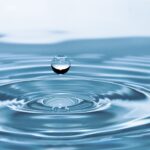We’re constantly reminded to drink plenty of water for optimal health. But can you overdo it? Is there such a thing as drinking too much water? The answer is yes. While rare, drinking excessive amounts of water can lead to a dangerous condition called hyponatremia, or water intoxication.
Drinking too much water overwhelms your kidneys’ ability to process fluids, leading to a dilution of sodium in your blood. This imbalance causes water to move into cells, including brain cells, which can swell.
Hyponatremia can manifest in various symptoms, including:
- Headache
- Nausea and vomiting
- Fatigue
- Confusion
- Muscle cramps or weakness
In severe, though rare, cases, hyponatremia can lead to seizures, loss of consciousness, and even death. The tragic death of a radio show contestant in 2007, who consumed nearly two gallons of water in two hours during a contest, serves as a stark reminder of the dangers. Actress Brooke Shields also recently shared her experience with a grand mal seizure caused by excessive water consumption.
Finding the Right Balance: How Much Water Do You Need?
The common recommendation of drinking eight, 8-ounce glasses of water a day is more of a guideline than a scientifically proven rule. Individual water needs vary based on factors such as activity level, health conditions, and climate.
The National Academy of Medicine suggests an adequate daily fluid intake of approximately 15 cups (3.7 liters) for men and 11 cups (2.7 liters) for women. This includes fluids from all sources, including food. Interestingly, about 20% of our daily fluid intake comes from the food we eat.
A practical approach for healthy individuals is to drink when thirsty. However, older adults may experience a diminished sense of thirst and should consciously drink water throughout the day, even when not feeling thirsty. Monitoring urine color can also be a helpful indicator of hydration levels. Light yellow urine generally indicates good hydration, while dark yellow urine suggests dehydration. Additionally, increased fluid intake is necessary if you’re experiencing vomiting or diarrhea.
Identifying the Threshold: How Much Water Is Too Much?
There’s no precise amount of water that triggers water intoxication. The kidneys can typically process about one liter (approximately 34 ounces) of fluid per hour. Consuming more than this amount consistently over several hours can put you at risk.
Several factors can increase the risk of overhydration:
- Endurance Athletes: Athletes participating in endurance events are particularly susceptible to overhydration due to prolonged periods of fluid intake.
- Medical Conditions: Certain medical conditions, such as kidney and liver disorders, can impair the body’s ability to regulate fluid balance, increasing the risk of hyponatremia.
- Medications: Certain drugs, including diuretics, antipsychotics, and ecstasy, can increase thirst and potentially lead to excessive water consumption.
Ultimately, listening to your body and being mindful of your individual needs are crucial for maintaining healthy hydration levels and avoiding the dangers of overhydration. If you have concerns about your fluid intake, consulting a healthcare professional or a registered dietitian can provide personalized guidance. They can help you determine the appropriate amount of water for your specific needs and circumstances.

